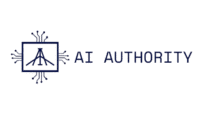Training Services
Unlock the full potential of your team with expert-led training on AI Authority’s unique proprietary resources. Our training programs empower your workforce to:
Master Proprietary Toolkits
Gain hands-on expertise in AI Maturity, Readiness, Value, Regulation Compliance, Bias Impact, and Fairness Assessment Toolkits. Learn how to assess and improve your organization’s AI capabilities rigorously and systematically.
Understand AI Authority Frameworks
Dive deep into our exclusive frameworks covering AI Strategy, Enterprise AI Architecture, Solution Architecture, Developer Guidelines, Governance, and Security. Acquire the skills to implement scalable, secure, and compliant AI systems aligned with global ethical standards.
AI Strategy
AI Strategy course
The AI Strategy course prepares professionals to design and lead a comprehensive AI strategy that drives measurable business impact. Participants will develop the skills to align AI initiatives with organizational goals, engage stakeholders effectively, and create a clear, actionable roadmap for AI adoption.
Through this program, learners will gain expertise in:
- Identifying key stakeholders and addressing their needs and concerns
- Crafting a forward-looking AI vision aligned with strategic objectives
- Conducting value assessments to prioritize high-impact AI use cases
- Performing readiness assessments across technology, data, talent, and governance
- Defining organizational enablers to realize the AI vision
- Designing a strategic roadmap for enabling capabilities
- Formulating practical, scalable AI implementation strategies
Who can attend AI Strategy course?
Top Level management, CXOs, innovation leaders, and digital transformation professionals, Enterprise Architects, Business and Technology executives, Program/Project Managers, Operations executives
Enterprise AI Architecture
Enterprise AI Architecture course
The Enterprise AI Architecture course program equips professionals with the skills and expertise to design, lead, and scale AI initiatives across the enterprise. Participants will learn how to architect AI systems that are strategically aligned with business objectives, operationally effective, and tailored to the unique needs of their organization.
The course covers a comprehensive set of competencies, including:
- Analyzing organizational context—environment, strategic drivers, goals, and objectives
- Adapting AI frameworks to enterprise-specific requirements
- Establishing foundational AI principles to guide design and implementation
- Defining AI strategies with clear roadmaps and execution plans
- Designing enterprise-grade AI architectures spanning business, data, application, and technology layers
- Developing implementation and migration strategies for smooth adoption and scalability
- Implementing AI governance to ensure compliance and architectural alignment
- Leading change management initiatives across both business and technology domains
Who can attend Enterprise AI Architecture course?
Enterprise Architects, Business and Technology executives, Program/Project Managers, Operations executives
Real-World Application
Through case studies, scenario-driven workshops, and interactive toolkits, participants will gain practical insights to embed responsible AI across their AI lifecycle — from strategy to deployment and monitoring
Certification Preparation
Our training also serves as comprehensive preparation for AI Authority’s certification programs, helping individuals and teams validate their proficiency and leadership in Responsible AI.
AI Maturity Assessment Toolkit
Diagnose your organization’s current state and plan your journey to AI excellence.
AI Readiness Assessment Toolkit
Evaluate infrastructure, skills, and culture to ensure successful AI adoption.
AI Value Assessment Toolkit
Quantify business impact, identify value drivers, and prioritize responsible AI investments
AI Regulation Compliance Assessment Toolkit
Audit and document alignment with global regulations (EU AI Act, PIPL, PDPA, etc.) using ready templates and checklists.
Bias Impact Assessment Toolkit
Identify, measure,and mitigate algorithmic and data bias in real time
Fairness Assessment Toolkit
Evaluate model outputs for fairness across demographics and scenarios —generate remediation strategies for continuous improvement.
